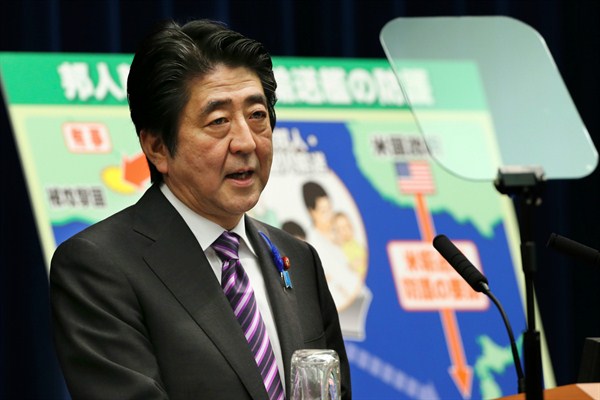Japanese Prime Minister Shinzo Abe today announced a major shift in the posture of Japan’s military, known as the Self-Defense Force, that could allow it to engage in combat on foreign soil six decades after it was founded. Japan’s military has for decades maintained a defensive mission under Article 9 of Japan’s constitution, which states that “the Japanese people forever renounce war as a sovereign right of the nation and the threat or use of force as a means of settling international disputes.”
The move was greeted with protests both at home and abroad. Local polls showed at least half of Japanese citizens opposed to the change; in advance of Abe’s announcement, thousands of protesters marched through Tokyo, and one set himself on fire. China’s official newspaper, People’s Daily, accused Abe of staging “a dangerous coup to overturn [Japan’s] post-war pacifism and democratic ideals” and noted ominously: “One can only hope that the dusk of Japan's pacifist constitution will not lead to the entire collapse of the postwar international system.”
The shift announced today had been widely expected, however. During his first term as Japan’s prime minister from 2006 to 2007, Abe tried and failed to amend the constitution to ease restrictions on Japan’s military. This time, rather than attempting to amend the constitution, Abe announced that he would interpret it differently than previous governments had: “collective self-defense”—using the military to help allies under attack defend themselves—would for the first time be permissible for Japan’s Self-Defense Forces, even if Japan itself was not directly under attack.

